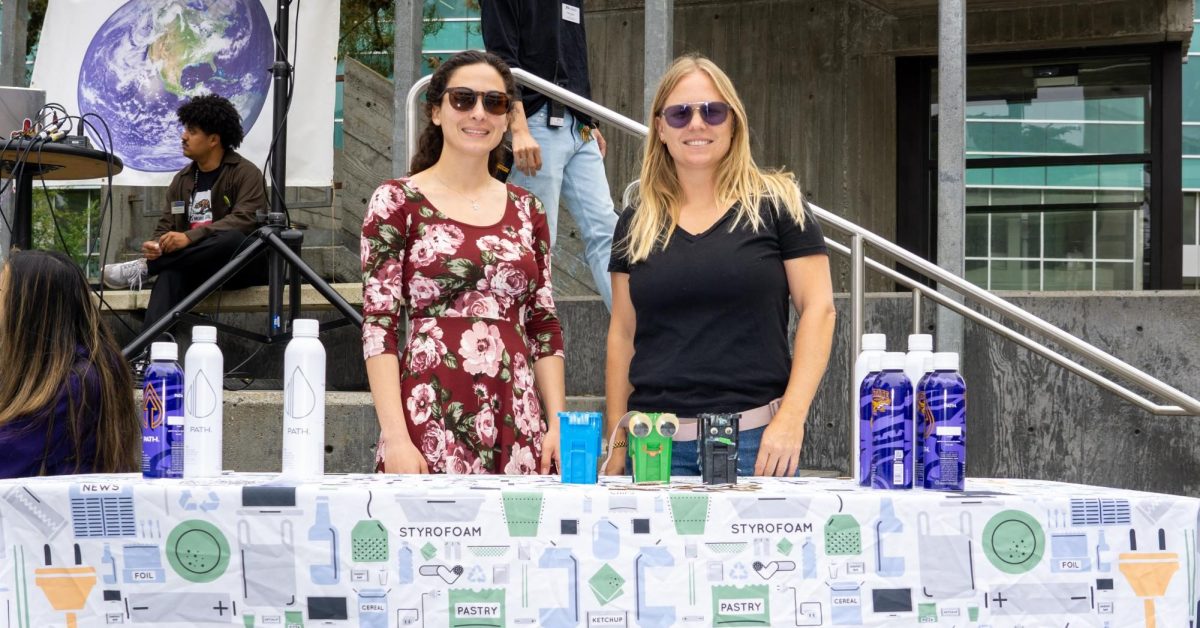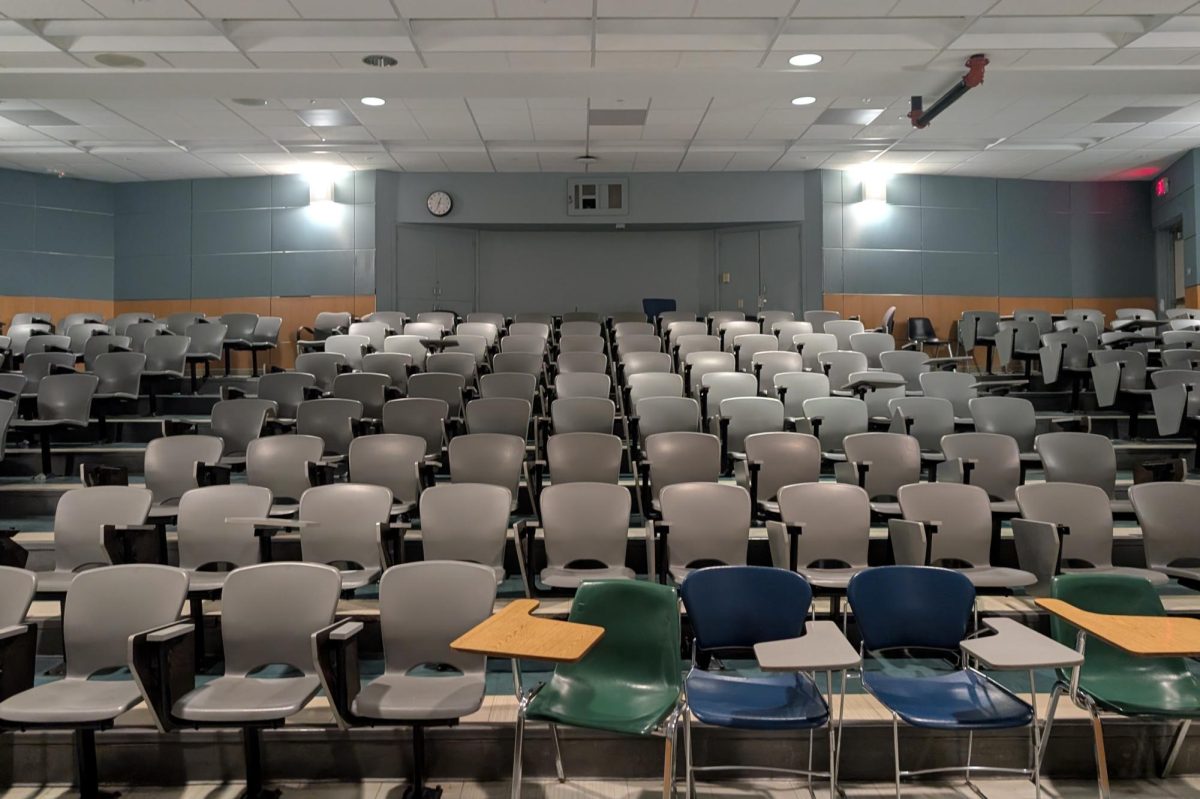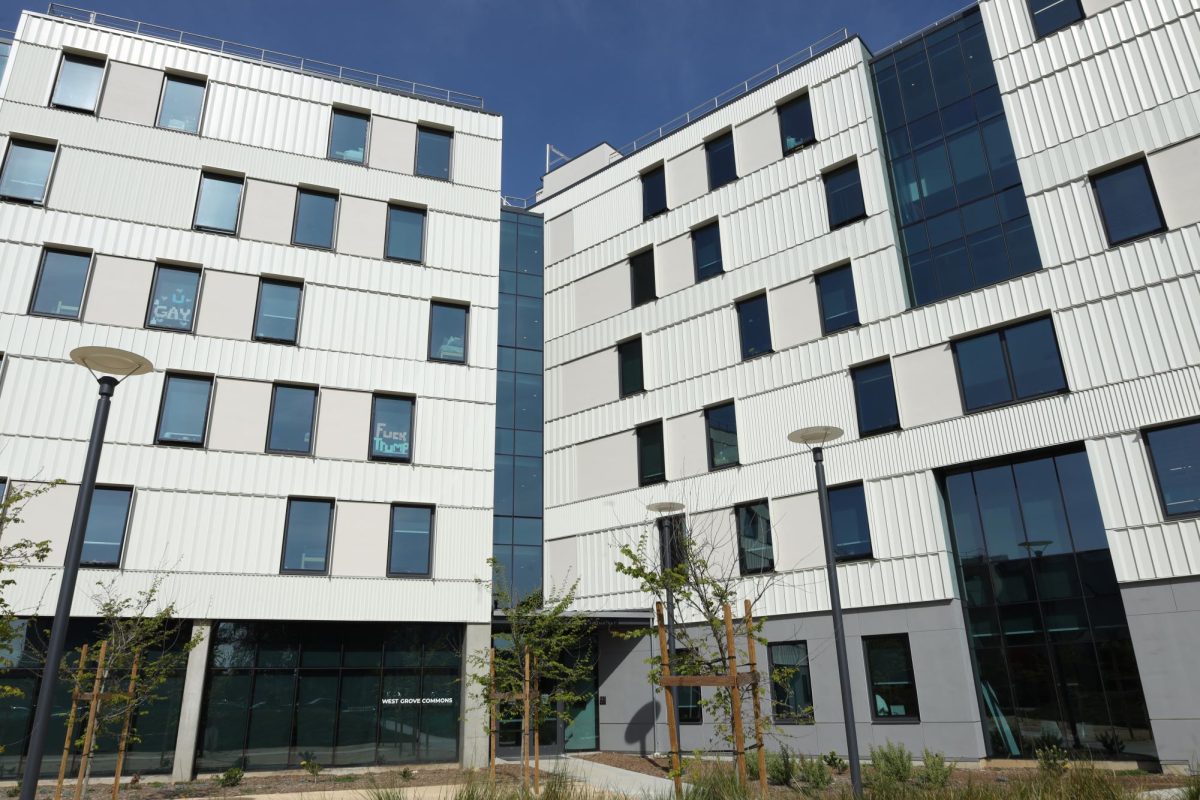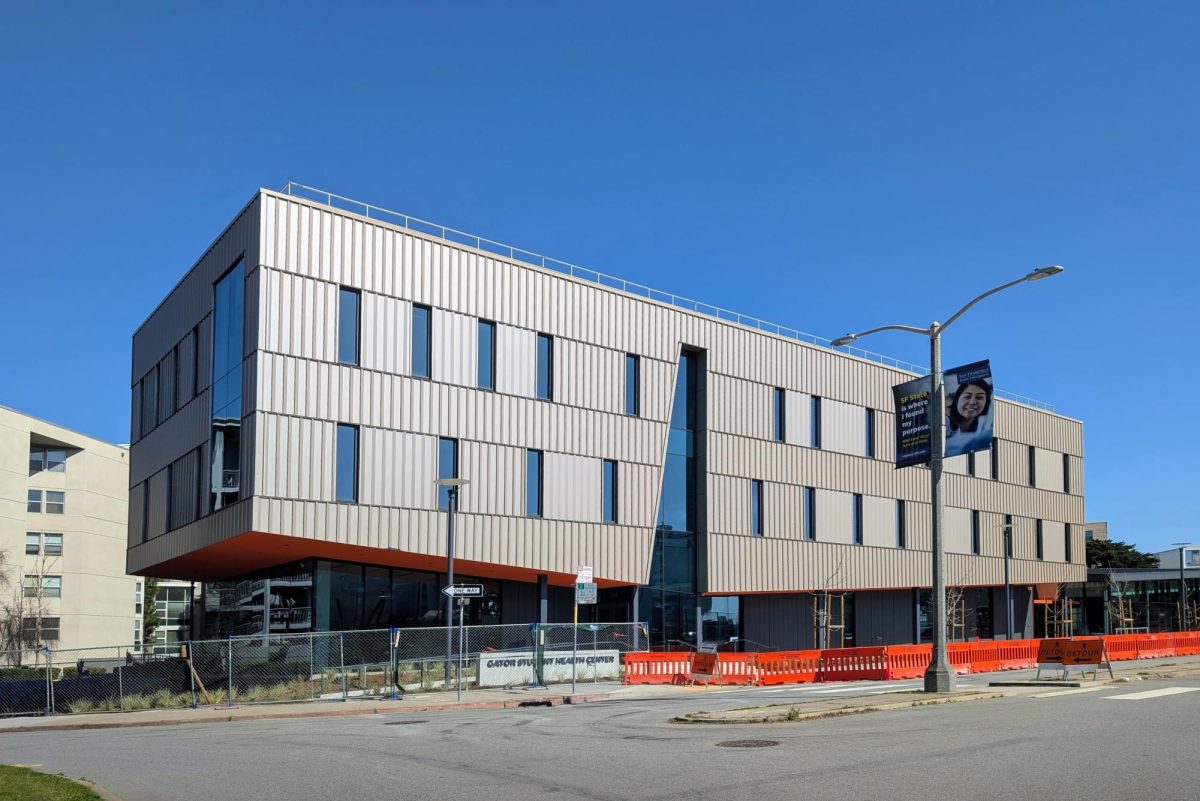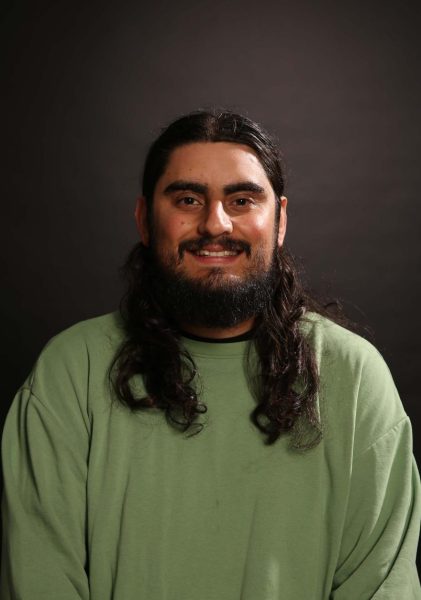San Francisco State University’s Office of Sustainability received a STARS gold rating, ranking third in the California State University system. The university participated in the Sustainability Tracking, Assessment, and Rating System (STARS), a transparent and self-reported framework for measuring sustainability performance for colleges and universities.
The Office of Sustainability handles diverse projects, including energy, waste, transportation, emissions and water initiatives. The office supports the Capital Planning, Design and Construction Office, introducing all-electric campus buildings, Manzanita Square housing, and the new Science Building under construction.
SFSU’s sustainability office was established in 2008 and is among 23 CSUs with a sustainability program. Nine hundred colleges and universities use the rating system to evaluate sustainability practices and is administered by the Association for the Advancement of Sustainability in Higher Education.
Although the Office of Sustainability was founded 15 years ago, the campus has been committed to sustainability for decades. Campus sustainability involves recycling, energy and water conservation, alternative transportation, waste reduction, green building practices, education, outreach, and partnerships. SFSU requires students to take environmental sustainability courses. In 2008, the university participated in the national competition Recyclemania and finished in the top five.
Caitlin Steele joined SFSU in 2007 as the recycling coordinator and now serves as the director of Sustainability & Energy.
Steele says the role of the Office of Sustainability is to coordinate efforts and help with communication across employees, faculty, staff and students.
The achievement of the gold STARS rating has everyone involved excited.
“A lot of points we’ve received from AASHE STARS was due to all the wonderful faculty who are teaching sustainability in their classes,” Steele said. “We also achieved a number of points in the STARS report because of all the faculty incorporating sustainability into their research efforts.”
According to the STARS website, the minimum overall score required for a Gold STARS rating is 65.
The STARS score of a university reflects points earned in four categories: Academics, Engagement, Operations and Planning & Administration. Institutions can earn up to four Innovation & Leadership points for innovative initiatives. The scoring formula calculates two totals, A and B, to determine a STARS rating.
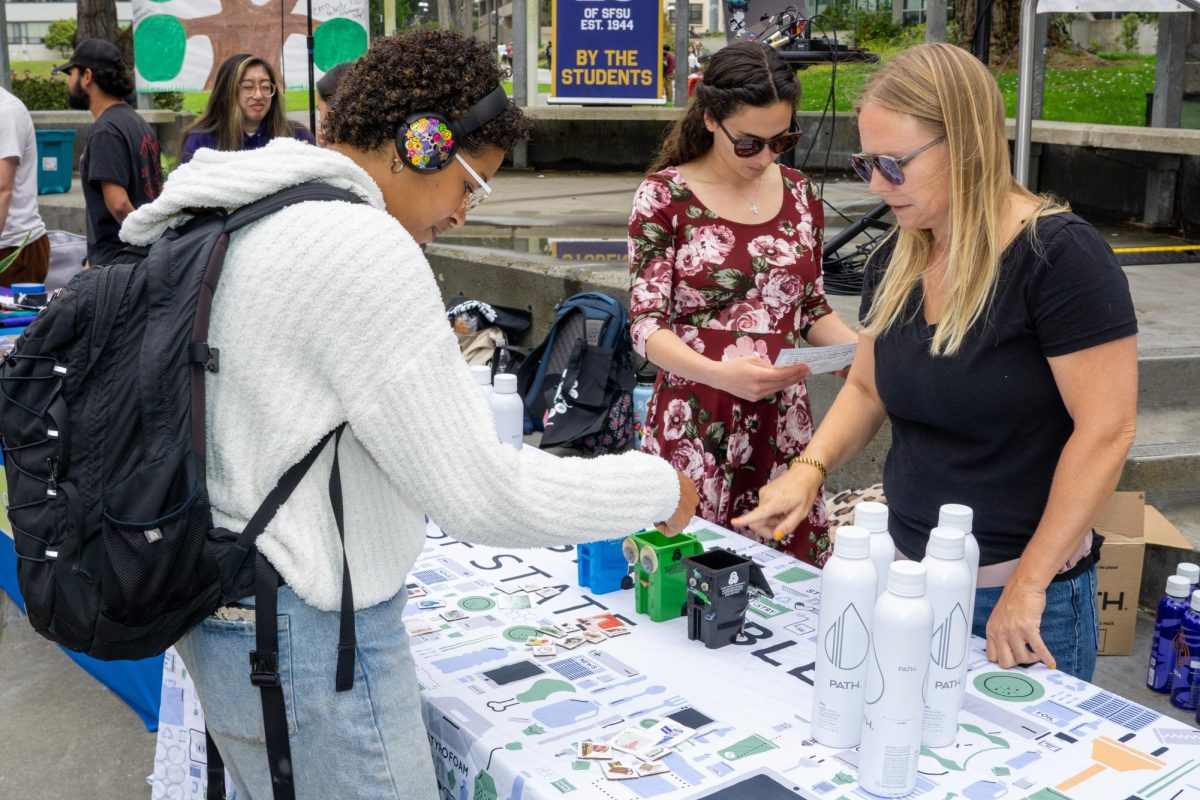
(Ryosuke Kojima)
“I’m proud to say we have the third-highest score for the CSU system,” Steele said. “We’ve done the report two times prior and we got silver both of those times, and we’re excited that we got gold. It underscores the growth of the sustainability program in SF State and the campus-wide support of sustainability.”
The STARS report took Steele a year to complete and she received help from climate action coordinator Taylor Mogavero and a student assistant.
Steele credits campus-wide support for achieving a gold rating in sustainability. Over 24,000 students actively participated in programs and received training and education through various resources. Students receive sustainability training, education through the Environmental Resource Center and faculty incorporating sustainability into their classes and research efforts resulting in receiving STARS report points. Another helpful outlet is The ERC Sol Patch Community Garden & AS Greenhouse which offers a chance to tend and maintain for educational purposes.
“Manzanita Square is an all-electric housing project, the new Science Building under construction is also all-electric,” Steele said. “We had an effort in the planning of those buildings to support the electrification and decarbonization that the state of California supported through the system.”
The STARS report is not a competition, according to Steele. All CSU sustainability officers support each other through monthly meetings and a dedicated group for the CSU-specific STARS report. Twenty-two of the 23 CSU campuses have completed the report.
Mogavero helps build sustainability programs and liaises with different SFSU departments, especially between the Environmental Resource Center and Climate HQ, to work on the different types of sustainability present across campus.
“I helped finalize that [ report], but Caitlin was the one who had been working on it for 10-plus months,” Mogavero said. “I’m helping her since she does so much tremendous work. She was the only person in the Office of Sustainability before me. I started this position to help lighten her load and expand on all of her sustainability programs and initiatives that we currently have.”
According to Mogavero, the STARS report is a lengthy, time-consuming, roughly 100-page form, requiring investigation into various sustainability focuses, requirements and point values. It involves answering specific questions and providing proof of completion through documentation.
“This varies from your accountability to reporting what kind of food you serve in your dining halls, what kind of energy you use, how many student engagement activities you have on campus,” Mogavero said. “It is a very detailed process that goes through almost everything that the university does. Whether it sounds sustainability-related or not, it goes through all of the coursework you have and looks at all of them.”
According to Mogavero, all SFSU courses impact sustainability ratings in the STARS report.
“Someone needs to ask the person who teaches the course or looks at their syllabus to see if they have sustainability initiatives,” Mogavero said. “Can we consider this sustainability-focused and go through that? You need to do that process for every little thing on campus.”
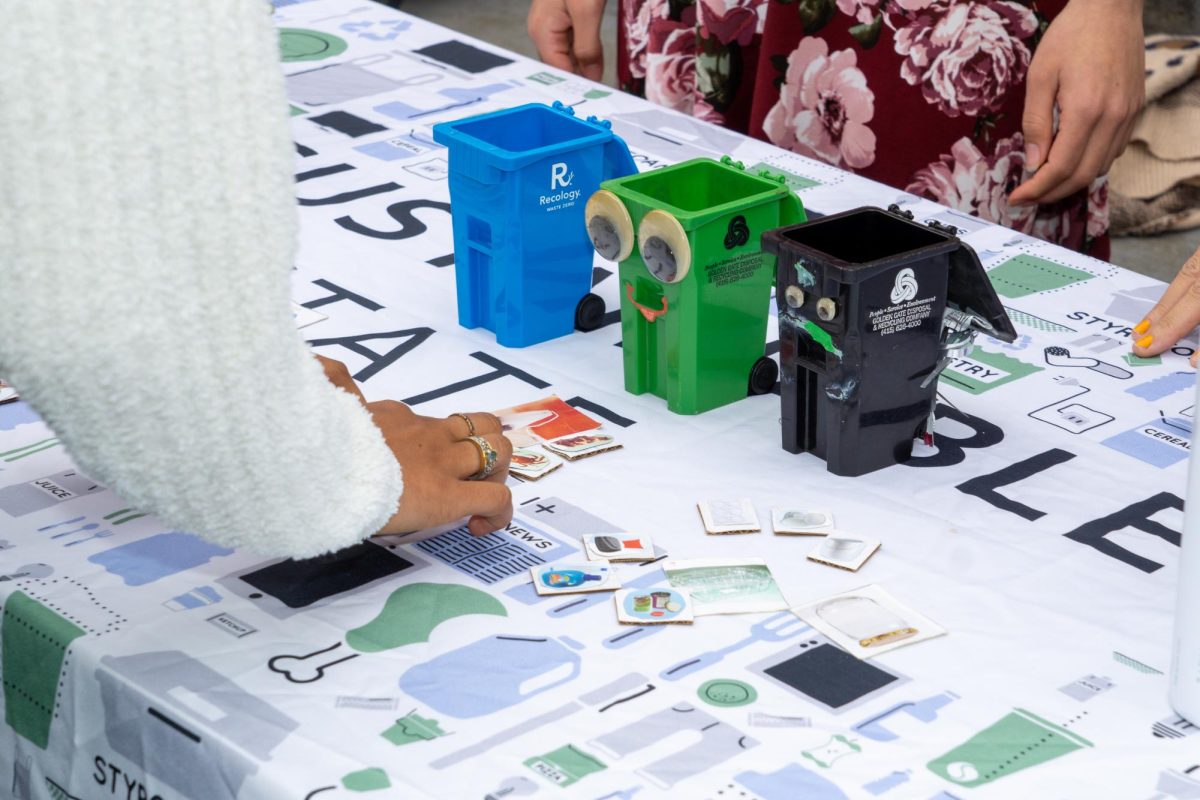
(Ryosuke Kojima )
Climate HQ is a climate justice program that aims to build a community of environmentally-conscious students through education on climate topics, according to Alcides Fuentes, program and communication specialist for Climate HQ.
“Getting students ready to have environmental careers in whatever field or getting them together to make friends with each other,” Fuentes said. “Because learning about climate change can be stressful, but if you have people around you that care about the same things, it makes it less of a burden on you individually.”
Regarding SFSU’s recent gold STARS rating, Fuentes said it feels good that the institution prioritizes sustainability and greener infrastructure.
“It’s aligned with the type of work I’m doing. Even the new School of the Environment, that building is coming along great and I work right next to it,” Fuentes said. “Every time I pass by it, I’m like, ‘That’s so cool.’”
One opportunity students have to volunteer and help during Climate HQ is Earth Week, which attracts numerous organizations and offers students a chance to take leadership roles.
Parking & Transportation partners with the Office of Sustainability to provide sustainable transportation initiatives and services to reduce campus drive-alone rates and carbon emissions while promoting equitable access to campus, according to Joy Manaois, the director of Operations & Finance for Campus Safety.
“We have installed 36 new EV charging stations in Lot 19/20 garage for those who drive electric cars to campus,” Manaois said. “We plan to add four more EVCS in Lot 2, next to the Administration building, to support campus members who work and live closer to 19th and Holloway.”
Besides the shuttle bus service, there are more joint efforts by the Parking and Sustainability Office to reduce carbon emissions and traffic on campus.
“Bike racks installed around campus and the new bike cage located at Thornton Hall,” Manaois said. “This initiative supports our campus members who bike to and from campus and help reduce gas emissions and city street traffic around campus.”
Editors Note: This story was updated to correct a caption and source’s title.




